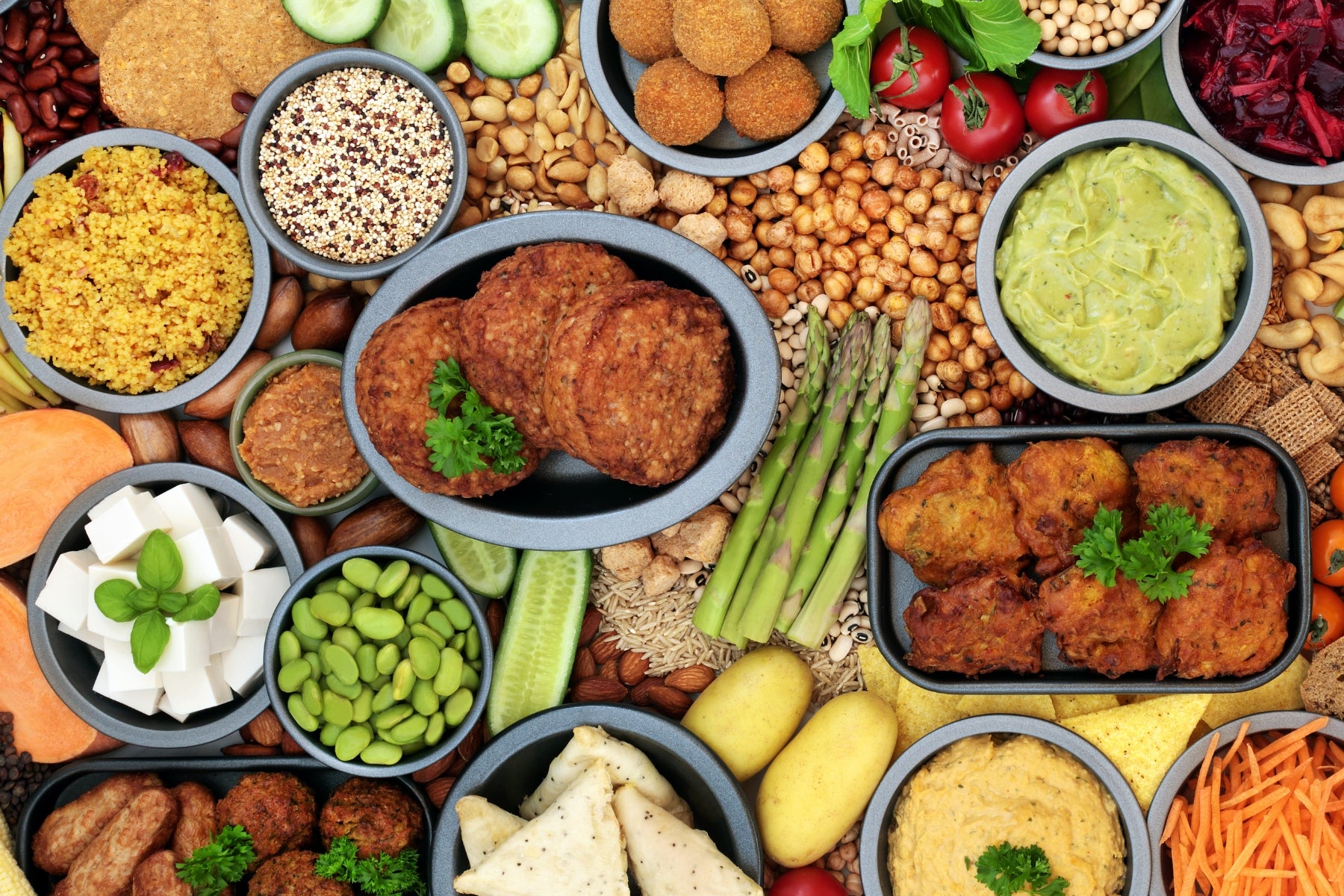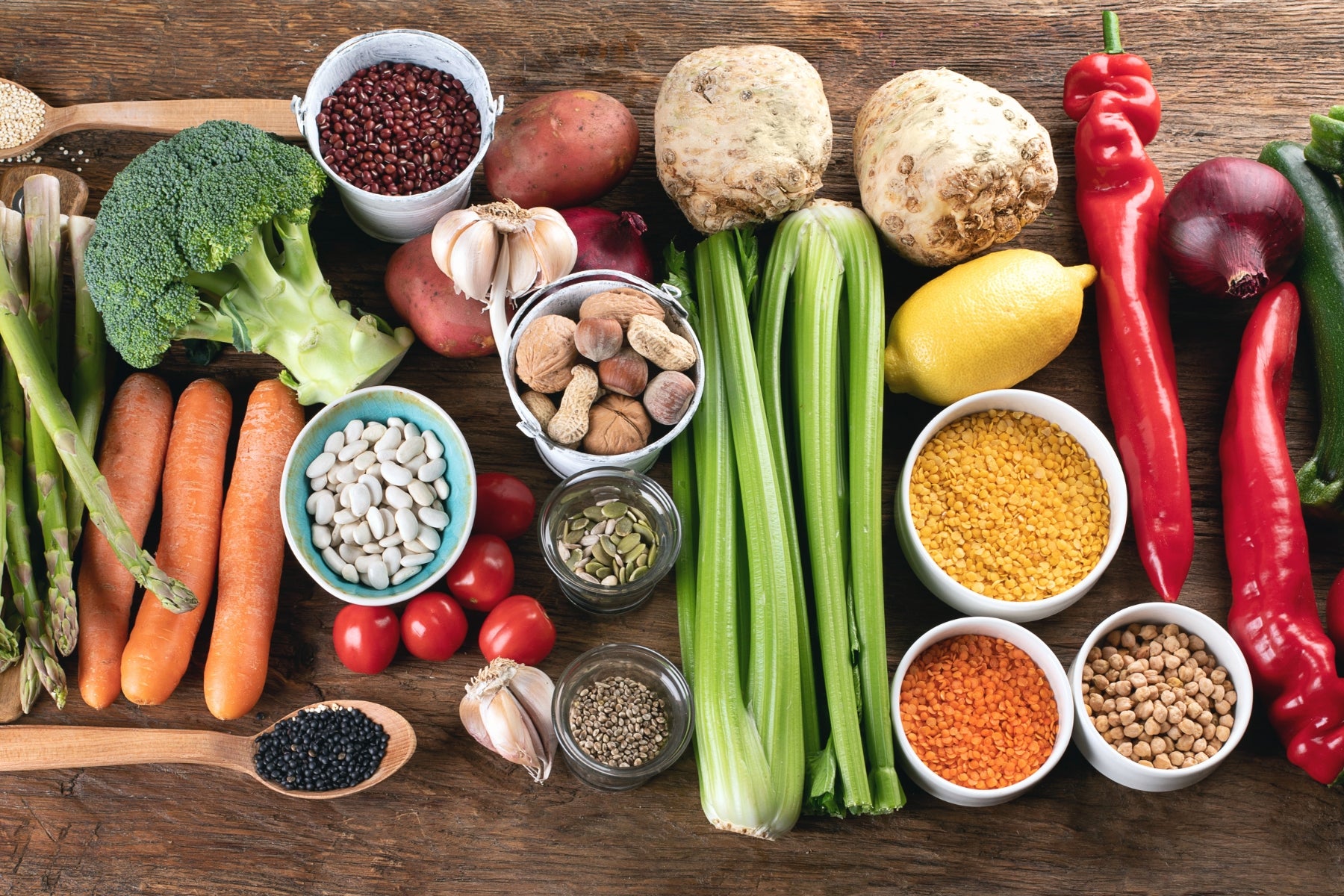
Vegetarian nutrition: everything you need to know
What is a vegetarian diet?
A vegetarian diet is a diet in which meat, fish and other animal products are dispensed with. Instead, vegetable foods such as fruit, vegetables, legumes, cereals, nuts and seeds are the focus. There are different forms of vegetarianism that differ in the degree of waiver of animal products.
The most common forms are:
- Ovo-lacto vegetarianism: avoiding meat and fish, but eggs and dairy products are consumed
- Lacto vegetarianism: avoiding meat, fish and eggs, but dairy products are consumed
- Ovo vegetarianism: avoiding meat, fish and dairy products, but eggs are consumed
- Veganism: Establishment of all animal products including eggs, milk and honey
Reasons for a vegetarian diet
There are many reasons why people choose a vegetarian diet. The most common motifs are ethical, ecological and health aspects. Many people reject the killing of animals for human consumption and see a way to avoid animal suffering in vegetarianism.
Climate protection also plays an important role, since the production of animal foods is associated with high CO2 emissions and resource consumption. Another reason is the health benefits of a plant -based diet. Studies show that vegetarians often have a lower body mass index, better cholesterol level and a lower risk of cardiovascular diseases, diabetes and certain types of cancer.
Nutrients in a vegetarian diet
A balanced vegetarian diet can provide all important nutrients that the body needs. Proteins that are often associated with meat can also be found in vegetable food such as legumes, nuts, seeds and whole grains. Iron is contained in dark green leafy vegetables, legumes and whole grain products.
Combination with vitamin C-rich foods improves iron absorption. Calcium can be found in dairy products, but also in green vegetables, nuts and calcium -rich mineral waters. For vitamin B12, which occurs almost exclusively in animal foods, enriched products or nutritional supplements are recommended. Careful food selection and possibly taking supplements ensure optimal nutrient supply.
Health advantages of a vegetarian diet
Numerous studies show the positive effects of a vegetarian diet on health. Vegetarians often have a lower body mass index and a lower risk of overweight and obesity compared to meat eaters. Among other things, this is due to the fact that vegetable food usually contains fewer calories and fat, but more fiber.
A vegetarian diet can also reduce the risk of chronic diseases. Studies show that vegetarians rarely develop cardiovascular diseases, high blood pressure, type 2 diabetes and certain types of cancer such as colon cancer. This is attributed to the higher consumption of fruit, vegetables, whole grains and healthy plant fats, which are rich in vitamins, minerals, antioxidants and fiber.
Vegetarian nutrition in different phases of life
A vegetarian diet is possible in all phases of life, but requires careful planning depending on the age and life situation. Pregnant and breastfeeding women have an increased need for nutrients such as iron, calcium, iodine and vitamin B12, which can be covered by a targeted food selection and, if necessary, nutritional supplements.
Children and adolescents can also eat vegetarian food, but require sufficient energy and nutrients for growth and development. Protein, iron, calcium, iodine and vitamin B12 are particularly important. For seniors, a vegetarian diet can reduce the risk of age -related diseases, but also requires sufficient nutrient intake. Individual nutritional advice can be useful in all phases of life.
Vegetarian nutrition and environmental protection
In addition to the health advantages, a vegetarian diet also makes an important contribution to environmental and climate protection. The production of animal food is associated with high resource consumption and greenhouse gas emissions. According to the world climate (IPCC), cattle breeding is responsible for around 15 % of global greenhouse gas emissions - more than the entire traffic sector.
A reduction in meat consumption and a change to a predominantly vegetable diet can significantly reduce ecological footprint. Vegetable foods need fewer space, water and energy for their production and cause lower greenhouse gas emissions. Each individual can make a contribution to climate protection through a vegetarian diet.
Delicious vegetarian recipes
A vegetarian diet is anything but boring and monotonous. There are countless delicious recipes that get along without meat and inspire with fresh, varied ingredients. Whether hearty lens bolognese, creamy pumpkin risotto, spicy chickpea curry or crisp quinoa salad-there are no limits to the imagination.
Classic meat dishes can often be easily modified. Instead of minced meat, for example, soybeans or jackfruit that have a similar consistency can be used. Tofu, Temh and Seitan are also versatile meat alternatives that are ideal for roasting, grilling or braising. With the right spice and preparation, vegetarian dishes taste at least as good as their meat -containing originals.
Conclusion: live vegetarian - good for you and the environment
A vegetarian diet offers many advantages for health and the environment. It can reduce the risk of chronic diseases, regulate body weight and reduce ecological footprint. With a balanced food selection and, if necessary, nutrients can be covered without meat.
Living vegetarian does not mean having to do without pleasure. On the contrary: vegetable cuisine is incredibly diverse and offers endless opportunities for creative, delicious dishes. Whether for ethical, ecological or health reasons - a vegetarian diet is a good choice for you and the environment. Try it out and discover the variety of vegetarian cuisine!
Frequently asked questions
What should a vegetarian eat daily?
For a balanced vegetarian diet, you should have whole grains, legumes, fruit, vegetables, nuts, seeds and healthy fats on your menu every day. Also pay attention to an adequate supply of protein, iron, calcium, iodine and vitamin B12 through a targeted food selection or nutritional supplement.
Is it healthy to eat vegetarian?
Yes, a full -fledged vegetarian diet can offer many health benefits. Vegetarians often have a lower body mass index, better cholesterol and a lower risk of cardiovascular diseases, diabetes and some types of cancer compared to meat eating.
How does vegetarian diet affect the body?
A vegetarian diet can have a positive effect on the body by reducing the risk of chronic diseases such as cardiovascular problems, high blood pressure, diabetes and certain types of cancer. Due to the high proportion of fiber, vitamins and minerals in plant -based foods, it also supports healthy digestion and strengthens the immune system.


